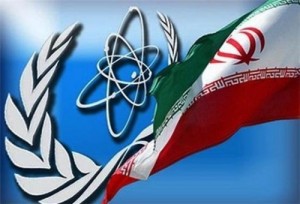 (Reuters) - The U.N. nuclear watchdog is expected to make a new attempt early next week to advance a long-stymied investigation into suspicions that Tehran may have carried out atomic bomb research, diplomatic sources said on Friday.
(Reuters) - The U.N. nuclear watchdog is expected to make a new attempt early next week to advance a long-stymied investigation into suspicions that Tehran may have carried out atomic bomb research, diplomatic sources said on Friday.They said the International Atomic Energy Agency and�Iran�were likely to meet again in the coming days to discuss IAEA requests for information about detonators that can, among other things, be used to set off a nuclear explosive device.
It could provide an opportunity for progress on a key issue ahead of a quarterly IAEA report on Iran's nuclear program, also due next week, which will be debated by the U.N. agency's 35-nation governing board at a meeting in early June.
Under a phased cooperation pact agreed between the two sides in November,�Iran�was to take seven transparency steps by May 15 to help allay international concern about its nuclear program, which the West fears may be part of a military project.
On the most sensitive of those - for Iran to provide information about the development of so-called Explosive Bridge Wire detonators - diplomats have said the U.N. atomic agency was seeking further clarifications from Tehran.
How Iran responds to the IAEA's questions is regarded as a litmus test of its readiness to start engaging with the investigation into what the U.N. agency calls the possible military dimensions of the country's nuclear program.
Iran denies Western allegations that it has been seeking to develop the capability to make nuclear weapons but has offered to work with the Vienna-based IAEA to resolve its concerns.
The IAEA-Iran talks are separate from those between Tehran and six world powers - the United States,�France,�Germany, Britain,�China�and�Russia�- aimed at reaching a broader deal to settle the decade-old nuclear dispute by late July.
But they are complementary as both focus on fears that Iran may covertly be seeking the means and expertise to assemble nuclear weapons. Iran and the powers held a new round of negotiations this week, also in the Austrian capital.
LIMITED HEADWAY
U.S. officials say it is vital for Iran to resolve IAEA concerns for a successful outcome of the broader diplomacy. But Iranian denials of any atomic bomb aspirations will make it difficult for Tehran to admit to any illicit work in the past.
Diplomatic sources said Iran in late April provided an explanation for what it said was a civilian application for the detonators but that the IAEA needed verification documents. A meeting on Monday apparently failed to fully resolve the issue.
Also, the two sides have yet to agree on what issues to tackle in the next phase under last year's agreement. The IAEA wants to speed up its inquiry into suspicions that Iran may have worked on designing an atomic bomb.
The other six measures that Iran agreed to take by this week's deadline - including inspector access to a uranium mine - were not seen as problematic, diplomats said.
The mere fact that Iran agreed to help clarify the detonator issue was seen as a breakthrough since the IAEA has tried for years, mostly in vain, to unblock its investigation.
But it was one of the least difficult issues that were detailed in a IAEA report in late 2011 that provided a trove of intelligence information pointing to past activities in Iran relevant to nuclear weapon development.
By Reuters
The Iran Project is not responsible for the content of quoted articles.










